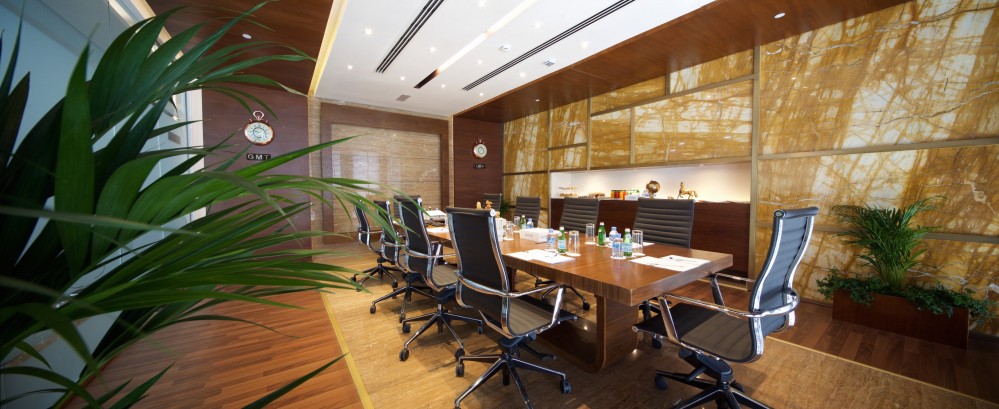Did you know that in Qatar, new companies aren’t permitted to trade until they have a 12-month physical office license in place? Fundamental client requirements such as this radically redefine what we consider a workspace ‘need’.
There’s a workplace revolution underway. The business landscape is shifting, and we’re heading for a future in which work is no longer a place people go, but a thing we do. Technology is the enabler, but let’s not forget who’s behind this radical and fundamental shift:
Regardless of the type of office and regardless of what you call the industry, the biggest player remains the same: the client. (The Biggest Player and Bringing the Industry Together, March 9, 2016)
The way clients use their workspace, and their current requirements for workspace, are changing. We’re not just talking about technology. The real driver is the client, and their marketplace in turn drives them.
Scratch the surface of the flexible workspace industry in parts of the Middle East, and there are some fundamental reasons why the client needs workspace. Really, truly needs it. Because without it, their business does not legally exist.
In Qatar, there are strict company formation rules imposed by authorities that means new businesses must have a minimum 12-month physical office agreement in place before they are permitted to trade (a virtual office doesn’t cut it).
According to Qatar company formation experts PRO-Partnership, new businesses must locate and obtain a 12-month lease on a real office space in order to obtain a Trade License, which allows them to legally trade in Qatar.
And that’s not all.
“There are many requirements that the office space must meet in order to be designated fit for purpose,” says James Townsend of PRO-Property, part of the PRO-Partnership organisation. “For instance, it [the office space] must have Civil Defense approval (Fire Safety approval) and provide the necessary documentation.”
Sales cycle ‘bottleneck’
As any workspace operator knows, the client sales cycle can vary from a few short days to many long months of decision-making and negotiations. An office space agreement is often the bottleneck of the company formation process in Qatar, so PRO-Property works closely with serviced office operators who understand the requirements, including Alliance Business Centers in Doha, who “are able to efficiently and effectively provide the correct documentation required to obtain the Trade License.”
That’s a very fundamental reason for startups to find a flexible workspace in Qatar (and an equally compelling reason for workspace operators to consider a presence in this market).
Given this fundamental need for office space, cost is not necessarily the priority. But business is business, and cost always plays an important role in business transactions.
“Generally, all companies are cost conscious at the moment,” says Mohammed Jamsheed, Global Mobility Senior Consultant at PwC. “Economic factors and oil prices are creating an air of uncertainty, and we find that cost is important not just for smaller businesses but also for large firms, too.”
As part of PwC’s global mobility team, Mohammed is responsible for helping to smooth the transition for new companies in the Middle East. He has found increasing demand from small businesses looking to set up in Qatar, which tend to have less direct involvement with oil and gas, and more on service provision and infrastructure including engineering, management, and IT.
Want vs Need
Even so, a 12-month office in Qatar is still more than a tick in the legal box.
“For multi-nationals, office prestige is very important. Clients want a prestigious location and beautiful offices, and location is very important too,” Mohammed explained. Referring to ABCN’s West Bay offices as an example, he says they are a “a good fit” given the area’s status as a high-profile business district.
“Above all, speed and timeliness are critical in the business set-up process in order to the acquire trade license,” he said. “But once they’re in, assuming they are happy, most companies often stay where they are. Providing they have everything they need, a good location and an agreeable price, they prefer not to uproot teams unnecessarily.”
Back to our original question of fundamental requirements, and it’s more of a lattice than a ladder.
The top priority for office space in Qatar might be speed and efficiency, but in order to keep clients for longer than 12 months, other factors come into play including cost, quality of services and fit-out, location and prestige.
It shows that even in today’s increasingly mobile world, clients won’t settle for a quick tick in the legal box or the cheapest office. Does that come as a surprise? Probably not, given the prevalent demand for serviced offices and flexible workspace in the world’s mot expensive locations. Reputation, professionalism, service, and even the desire to ‘look good’ still rank highly. In the end it comes down to value, and as the balance swings towards work as a ‘thing we do’, value will continue to become an important and fundamental ‘need’ for our industry.



 Dr. Gleb Tsipursky – The Office Whisperer
Dr. Gleb Tsipursky – The Office Whisperer Nirit Cohen – WorkFutures
Nirit Cohen – WorkFutures Angela Howard – Culture Expert
Angela Howard – Culture Expert Drew Jones – Design & Innovation
Drew Jones – Design & Innovation Jonathan Price – CRE & Flex Expert
Jonathan Price – CRE & Flex Expert












